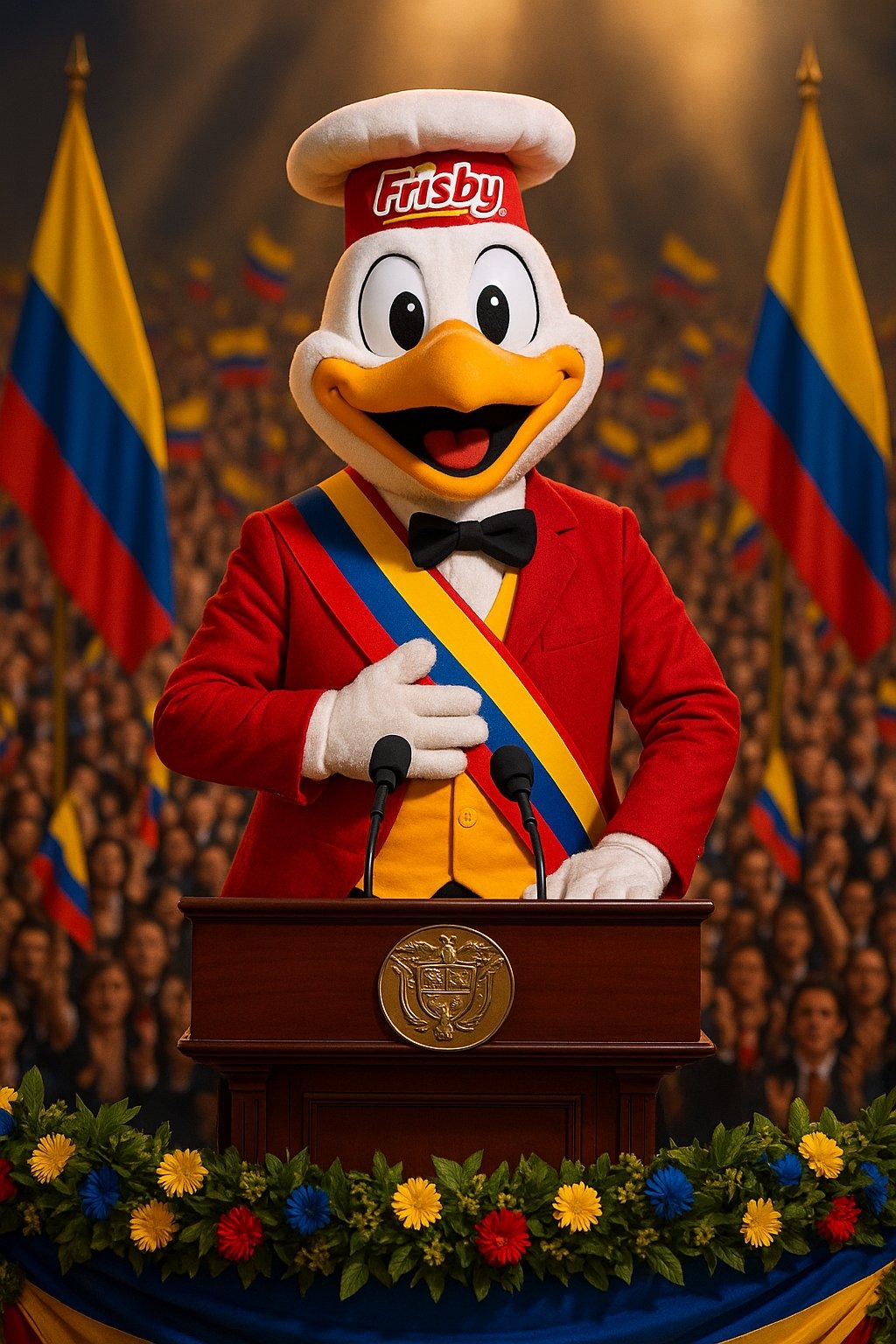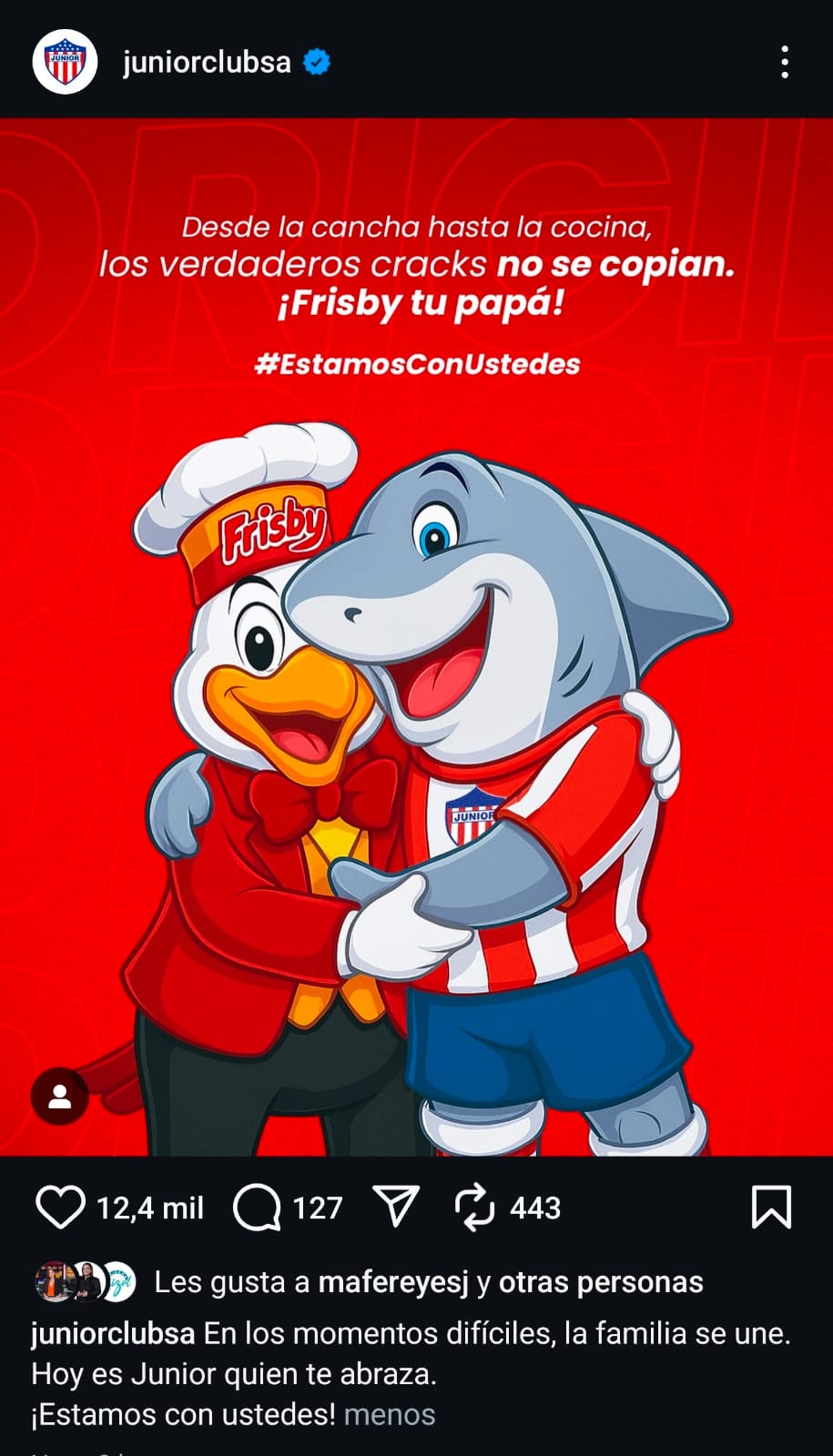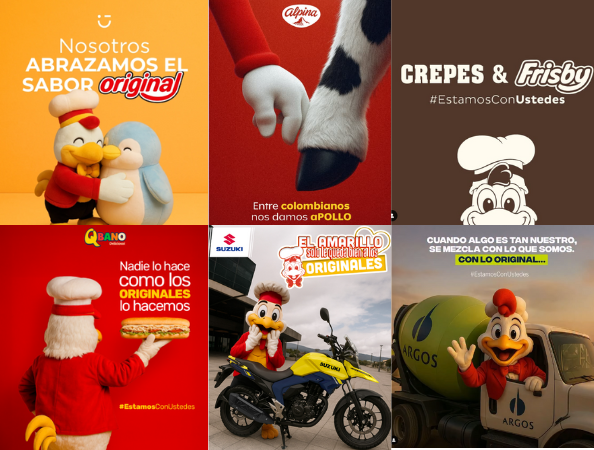The marketing phenomenon that became Frisby's 'fight' over the unauthorized registration of his trademark in Spain

Frisby chicken has been on the lips of millions of Colombians for several days now, and not precisely because of a mega-sale on its food offerings or a price cut on its impressive family combos; that's what its loyal customers would want. The reason has been the solidarity aroused among those hundreds of thousands of followers by the fact that the company's flagship brand was registered in Spain without the proper authorization from its creators in Colombia.
As soon as the incident became known, messages of support for the company, its owners, and employees, as well as condemnation of the action on social media, poured in. Within a few hours, the news had become an unprecedented viral phenomenon in the Colombian business world.
The controversy arose after the owners of Frisby in Colombia reported the misuse of their trademark in the "Motherland," where it was registered as "Frisby España SL." But it's not just the name of the Colombian company that is being misused in the Iberian country; the restaurant chain's logo, character, and colors are also being misused, as evidenced by some images that have circulated on social media in recent weeks.
Behind this action are lawyer Gonzalo Barrenechea Correa and Jacqueline Guillemine Pérez, who incorporated the company before notary Juan Ignacio Gomeza Villa in Bilbao, Spain, where the new company was registered. What they perhaps didn't realize was the magnitude this action would reach, not only on social media, where tweets continue to number in the hundreds, but also the media coverage of the news.
Transportation companies, food companies, gas stations, soccer teams, influencers, restaurant chains—including their direct competitors—television companies, cement companies, airlines, banks, and of course, on this list that could be very long, politicians couldn't be missing trying to take advantage of this trend to win voters.
There was also a social media personality who, in a sarcastic tone regarding the unity the brand has sparked among the Colombian people, proposed Frisby the chicken to run for President of the Republic in the upcoming elections.

Solidarity with the brand led to a proposal for Frisby Chicken to run for president. Photo: Image taken from the X jelgect@tejodioel account
But how original and sincere have these displays of affection, support, and solidarity from millions of Colombians and businesses been for the renowned restaurant chain?
EL TIEMPO consulted with academic experts in marketing and advertising, who agreed that a topic as viral as Frisby's could be a bit of a mix, including a hidden agenda to capitalize on this strong trend, which is unprecedented in the country.
Something that is common today—experts say—when companies and people live based on achieving the greatest number of "views" or clicks, while the company has a huge opportunity to capitalize on the reputation it has managed to build for decades around its flagship brand with what is happening.
" Without realizing it, a crisis became an opportunity that repositioned the brand in the minds and feelings of Colombians," said Lina María Echeverri, director of the Graduate School of Business (GSB) at the Universidad del Rosario, who is an expert in marketing.
The reason for this—he adds—is because it's a positive brand, one that's embedded in the culture, an icon of the country, and that's why many other national and foreign companies have joined in on that sentiment; first, in an act of solidarity and camaraderie, but also, "there may be a bit of opportunism, which I hope isn't the case, seeking to make their brands go viral because I support a brand that's having problems but is trending on social media."

Colombian clubs express their support for Frisby: Junior Photo: Instagram
"I've never seen a similar phenomenon before, and I think the biggest beneficiary, without a doubt, is Frisby, as it became a trend without investing a single peso. Everyone is talking about that brand. Imagine how much a campaign of that magnitude would have cost the company; I can't imagine the amount of money it would have taken," said Juan Pablo Rocha, director of the Academic Area of Advertising at Jorge Tadeo Lozano University.
The publicist, with more than 40 years of experience in the sector globally and director of the advertising agency Juju, highlights the originality of the first company to show solidarity with Frisby, which he considered an interesting moment to support that brand and defend its origins.
However, he warns that when other companies begin to join this initiative—today there are more than 200—then "they are no longer as original, and it's incredible that they try to defend originality by copying what another brand does; it's a contradiction."
Reap what you sow Another aspect of this situation on which experts agree is the opportunity that has opened up for Frisby's management to capitalize on this gesture of support that Colombians have shown towards the brand , which is undoubtedly a response to the image and reputation that they have built over these nearly five decades of operations, because if this were not a beloved brand, they would not have received the solidarity and support of the country.
According to Echeverri, director of GSB, real-time marketing is a topic that is gaining momentum every day. It involves creating and executing marketing actions quickly and in a timely manner in response to events, trends, or news that are happening at the moment, with the goal of gaining greater visibility, generating stronger engagement, and increasing conversions. This is undoubtedly a very important opportunity for Frisby to capitalize on.
But she warns that it must be handled with caution, as it can also pose risks to audiences. It's important to understand that "people take ownership of a brand like this that has done things well by reaching out to people, because it's a brand with a purpose, and one of the things this case teaches us is that brands don't belong to companies, but to customers," explains the expert, who believes it's the result of well-done brand-building work, because not everyone can achieve it.

Brands from different sectors showed their support for Frisby Colombia. Photo: Social media
The problem is that in the second half of this 'crazy trend' the company must act quickly, because for Rocha, of Tadeo Lozano, the phenomenon will soon disappear "in a week there probably won't be a single more gesture of support, perhaps no one will talk about the issue anymore, so the company must try to capitalize on this moment."
She doesn't doubt everything the company's owners have done to build a brand so beloved by people, but she says that wasn't what made it go viral at the moment, but rather the fact that in the midst of the problem, someone saw fit to support it, and others later joined in until the trend became unstoppable.
People embrace a brand like this that has done things right by reaching out to people, because it's a brand with a purpose, and one of the things this case teaches us is that brands don't belong to companies, they belong to customers."
He also has no doubt that this offers some lessons beyond the opportunity it provides to capitalize on all the affection expressed on social media. It also sends a message to companies that building a brand isn't done by "jumping on a trend," because in a few days, people won't remember many of the companies that did so on that occasion.
And for the director of the GSB, one lesson for brand management and administration is undoubtedly to stop seeing them solely as a logo and symbol, but rather as a highly valuable asset for companies.
"We must also understand the way companies relate to their clients and consumers today. We must create that emotional connection as brands become part of people's lives. We need to regain a sense of nationalism through the companies themselves," he explained.
eltiempo





